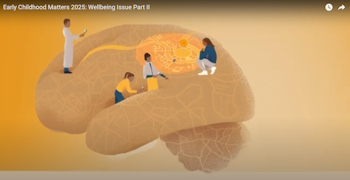What Parents Need for a Good Start
This video from the Van Leer Foundation makes the case that we need an all-of-society and all-of-government approach to better support parents. The video accompanies Early Childhood Matters 2025: The well-being Issue Part II.Read More →









